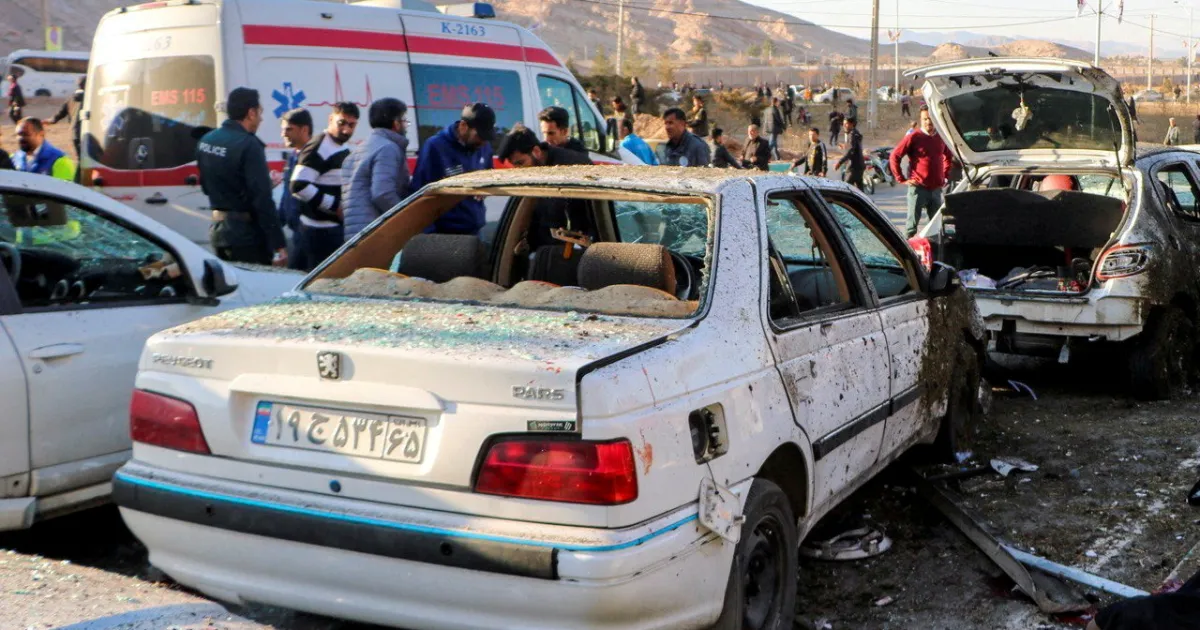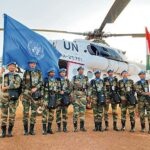Iran observes a day of national mourning on Thursday, January 4, the day after the attack which left 84 dead near the tomb of General Qassem Soleimani. A double explosion occurred near the Saheb al-Zaman mosque, where the tomb of General Soleimani is located, in Kerman, in the south of the country.
A first explosion occurred 700 meters from the tomb, the second a kilometer further, according to Iranian sources. A compact crowd of regime representatives and anonymous people were there for a ceremony in memory of the general, killed four years ago by an American strike in Iraq.
What do we know about the attack?
The official death toll stabilized at 84 deaths on Thursday, after first reporting 103 then 95 deaths. The country’s emergency chief, Jafar Miadfar, told state television that “284 people were injured, including 195 still hospitalized.” According to him, the degraded state of certain bodies after the explosion complicated the census of victims. Interior Minister Ahmad Vahidi warned that the death toll could rise, with some injured in a “critical condition”. The Iranian government declared Thursday, January 4, a “national day of mourning” after the attack, the deadliest in Iran since 1978, when an arson attack killed at least 377 people in a cinema in Abadan.
Although the attack was not claimed, a political advisor to the Iranian president, Mohammad Jamshidi, immediately designated Israel and the United States as responsible for this attack. The State Department in Washington, for its part, deemed any suggestion of the involvement of the United States or Israel “absurd”. “The United States was not involved in any way,” State Department spokesman Matthew Miller said, adding that he had “no reason to believe that Israel is involved.” Iran’s sworn enemy, Israel, has not commented on the attack. “We are focused on the fighting with Hamas,” replied army spokesperson Daniel Hagari.
Iran’s supreme leader, Ayatollah Ali Khamenei, promised a “severe response” to the attack, an “odious and cowardly” act for President Ebrahim Raïssi who canceled a planned trip to Turkey, according to state media . Neither leader, however, pointed the finger at any particular foreign country or military group.
Who was General Qassem Soleimani?
Qassem Soleimani was killed in January 2020 in an American drone attack in Iraq. A key man in the Iranian regime, he was also one of the country’s most popular figures. Architect of Iran’s regional power, he has sometimes been nicknamed the Shadow Commander.
Long considered a sworn enemy of Washington and its allies, Qassem Soleimani led the Quds Force, the external operations arm of Iran’s Islamic Revolutionary Guard Corps, overseeing military operations throughout the Middle East. Declared a “living martyr” by Ayatollah Ali Khamenei while he was still alive, Qassem Soleimani was celebrated for his role in the defeat of the Islamic State jihadist group in Iraq and Syria.
What are the reactions to the attack?
Hamas, supported by Tehran, denounced a “terrorist act (…) which seeks to destabilize the security of the Islamic Republic in the service of the agenda of the Zionist entity (Israel)”. For his part, Russian President Vladimir Putin denounced an attack “shocking in its cruelty and cynicism”, and Chinese President Xi Jinping offered his condolences to his Iranian counterpart, expressing his “deep sadness”, according to comments reported by CCTV.
“I condemned this terrorist attack in the strongest terms and I expressed (my) solidarity with the Iranian people,” communicated the head of European diplomacy Josep Borrell. Finally, the Secretary General of the UN, the European Union, France, Germany, Jordan and Saudi Arabia also condemned this attack.
What consequences for the region?
This attack occurred in a very tense regional context since the start of the conflict in October between Israel and Hamas, and the day after the elimination of Saleh al-Arouri, a senior member of the Palestinian Islamist movement in a strike near Beirut, attributed to Israel. The leader of Lebanese Hezbollah, Hassan Nasrallah, warned Israel against a further escalation of violence: “For the moment, we are fighting on the front in a calculated manner (…) but if the enemy thinks of launching a war against Lebanon, we will fight without limits, without restrictions and without borders (…) We do not fear war,” he declared.
It is precisely to ease tensions that the head of American diplomacy, Antony Blinken, is preparing to undertake a new tour of the Middle East, the fourth since the start of the conflict between Israel and Hamas.
This article is originally published on francetvinfo.fr








